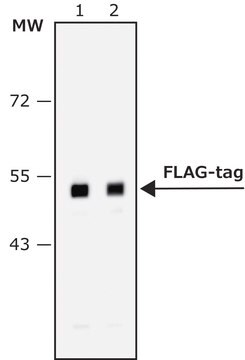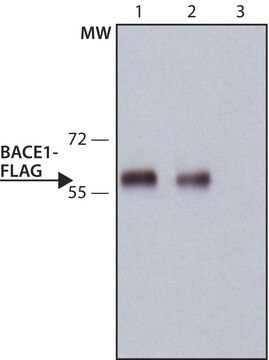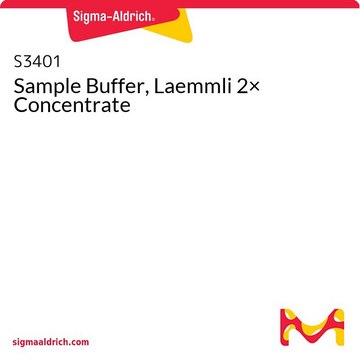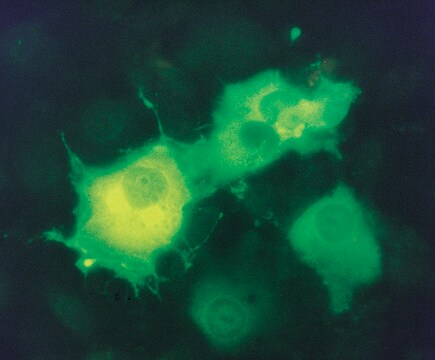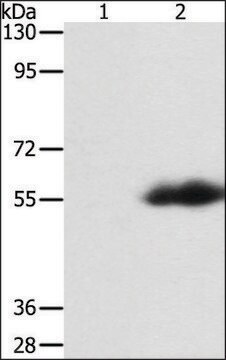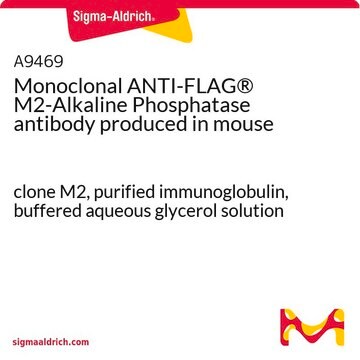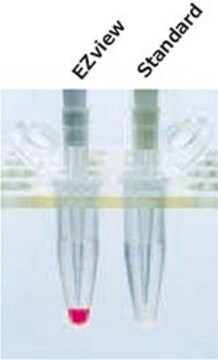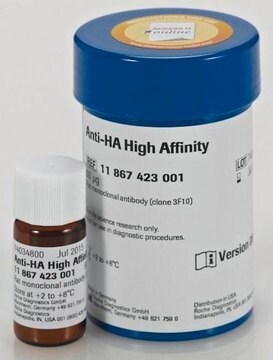SAB4200119
Monoclonal Anti-FLAG-Peroxidase antibody produced in rat
2-4 mg/mL, clone 6F7, purified immunoglobulin
Sinonimo/i:
Anti-ddddk, Anti-dykddddk
About This Item
Prodotti consigliati
Origine biologica
rat
Coniugato
peroxidase conjugate
Forma dell’anticorpo
purified immunoglobulin
Tipo di anticorpo
primary antibodies
Clone
6F7, monoclonal
Stato
buffered aqueous solution
Reattività contro le specie
all
Concentrazione
2-4 mg/mL
tecniche
western blot: 1:1,000-1:2,000 using extracts of transfected cells expressing C-terminal FLAG-tagged fusion protein
Isotipo
IgG1
Sequenza immunogenica
DYKDDDDK
Condizioni di spedizione
dry ice
Temperatura di conservazione
−20°C
Descrizione generale
Immunogeno
Applicazioni
Stato fisico
Note legali
Non trovi il prodotto giusto?
Prova il nostro Motore di ricerca dei prodotti.
Codice della classe di stoccaggio
10 - Combustible liquids
Punto d’infiammabilità (°F)
Not applicable
Punto d’infiammabilità (°C)
Not applicable
Scegli una delle versioni più recenti:
Possiedi già questo prodotto?
I documenti relativi ai prodotti acquistati recentemente sono disponibili nell’Archivio dei documenti.
I clienti hanno visto anche
Il team dei nostri ricercatori vanta grande esperienza in tutte le aree della ricerca quali Life Science, scienza dei materiali, sintesi chimica, cromatografia, discipline analitiche, ecc..
Contatta l'Assistenza Tecnica.
